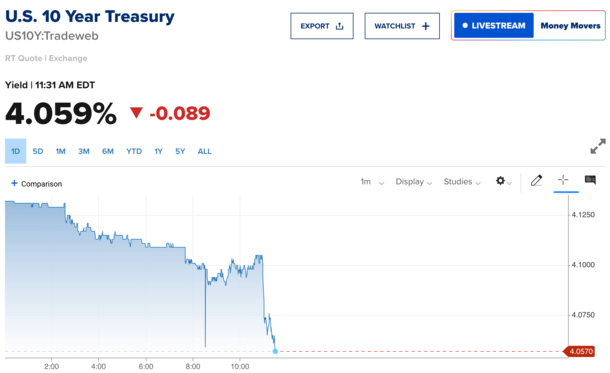Exclusive: Trump admin lays off Treasury CDFI staff
unitedbrokersinc_m7cmpd2025-10-11T01:22:49+00:00Key insight: Treasury said it will abolish the CDFI Fund in reduction in force notices handed out to employees on Friday. Forward look: The CDFI funding that's already been appropriated could be subject to what's called a "pocket recession," a move likely to be legally challenged. What's at stake: Millions of dollars for banks and other financial firms that lend to customers across the political spectrum could never reach those customers if the program and its staff are gutted. WASHINGTON — The Trump administration is gutting the Community Development Financial Institutions Fund staff as it pursues significant reductions in force on Friday. Russell Vought, head of the Office of Management and Budget, said on social media that the layoffs — which the Trump administration has been threatening since the beginning of the government shutdown Oct. 1 — have begun. That shutdown shows little sign of ending soon as Democrats refuse to pass a continuing resolution to keep the government funded without extending health care subsidies that, if expired, they say would raise health insurance costs for many Americans. The CDFI Fund is wrapped up in the mass layoffs, according to documents viewed by American Banker. "The [Reduction in Force] is necessary to implement the abolishment of the Community Development Financial Institutions (CDFI) which is based upon the Department of Treasury determination that its programs, projects, and activities do not align with the President's priorities," the RIF notices say. The layoffs will be effective in mid-December, they say. The Trump administration earlier this year targeted the CDFI Fund in an executive order that aimed to abolish the fund, to the extent that it would be statutorily allowed, a move that received immediate pushback from both sides of the aisle in Congress because of the bipartisan support that the program has seen throughout its history. In a note to OMB, also obtained by American Banker, Treasury Secretary Scott Bessent said that all the CDFI programs are statutorily mandated. This should mean that the program cannot be abolished by an executive order. Nonetheless, OMB has not allowed the Treasury to begin the process for disbursing the money appropriated to the CDFI, and the RIF notices show that the Trump administration still plans on abolishing the fund. Vought has argued in favor of using "pocket recessions" for funds appropriated by Congress for programs that the executive branch decides it doesn't want. Under current law, a president can propose cuts to a program that has already been funded by making a request to Congress, which in turn has 45 legislative days to respond. A pocket recession is when a president proposes those cuts too late in the fiscal year for Congress to consider them for the required 45 session days.CDFIs thought they received something of a reprieve late last month when OMB told attendees at a meeting that it had committed to disbursing the CDFI funds. The Treasury Department released a supplemental portion for already-submitted applications that would allow institutions to remove climate-focused financing from a list of eligible activities to receive the funds. It also removed definitions of "eligible markets" related to race or ethnicity. CDFIs would not get approved for funds on the basis of those items being on their CDFI application, and it would not count positively toward firms' eligibility. Those supplemental applications are due Oct. 27, but that could be pushed back due to the government shutdown. OMB at the time did not commit to a timeline for awarding the appropriated funds.


